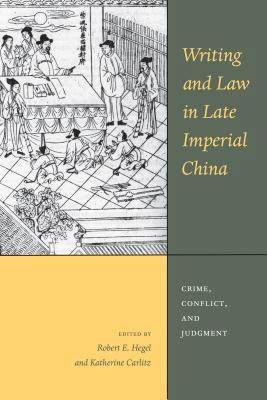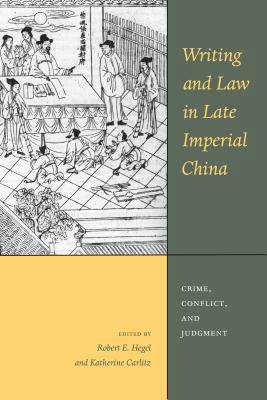
- Afhalen na 1 uur in een winkel met voorraad
- Gratis thuislevering in België vanaf € 30
- Ruim aanbod met 7 miljoen producten
- Afhalen na 1 uur in een winkel met voorraad
- Gratis thuislevering in België vanaf € 30
- Ruim aanbod met 7 miljoen producten
Writing and Law in Late Imperial China
Crime, Conflict, and Judgment
Robert E Hegel, Katherine N CarlitzOmschrijving
In this fascinating, multidisciplinary volume, scholars of Chinese history, law, literature, and religions explore the intersections of legal practice with writing in many different social contexts. They consider the overlapping concerns of legal culture and the arts of crafting persuasive texts in a range of documents including crime reports, legislation, novels, prayers, and law suits. Their focus is the late Ming and Qing periods (c. 1550-1911); their documents range from plaints filed at the local level by commoners, through various texts produced by the well-to-do, to the legal opinions penned by China's emperors.
Writing and Law in Late Imperial China explores works of crime-case fiction, judicial handbooks for magistrates and legal secretaries, popular attitudes toward clergy and merchants as reflected in legal plaints, and the belief in a parallel, otherworldly judicial system that supports earthly justice.
Specificaties
Betrokkenen
- Auteur(s):
- Uitgeverij:
Inhoud
- Aantal bladzijden:
- 352
- Taal:
- Engels
- Reeks:
Eigenschappen
- Productcode (EAN):
- 9780295989136
- Verschijningsdatum:
- 17/02/2009
- Uitvoering:
- Paperback
- Formaat:
- Trade paperback (VS)
- Afmetingen:
- 150 mm x 226 mm
- Gewicht:
- 544 g

Alleen bij Standaard Boekhandel
Beoordelingen
We publiceren alleen reviews die voldoen aan de voorwaarden voor reviews. Bekijk onze voorwaarden voor reviews.











